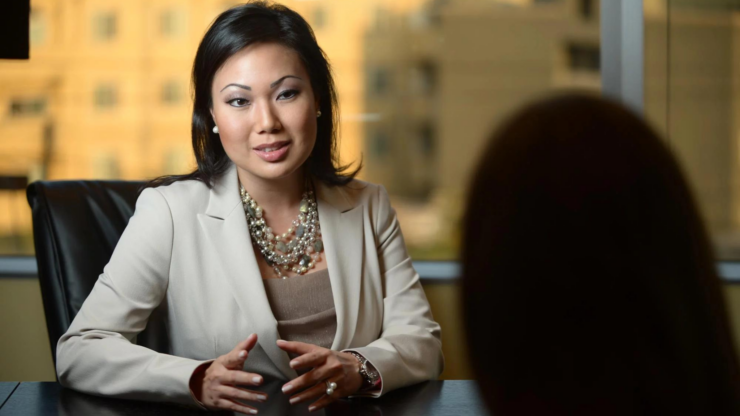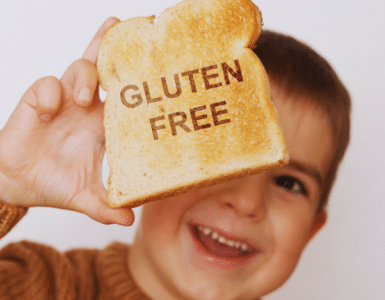In today’s age of digital technology, social media reigns supreme, dominating the lives of teenagers across the globe. Based on current data (and a pandemic spanning several years), there is a growing concern about the impact that social media has had on their mental health.
Anxiety and depression among teen girls have reached alarming levels, with suicide being the second leading cause of death in youth aged 10 to 24. To shed light on this pressing issue and offer potential solutions, Board Certified Clinical Psychologist Dr. Jenny Yip, a renowned expert in OCD, anxiety, and parenting, shares her insights and expertise.
She is the author of “Productive, Successful You: End Procrastination by Making Anxiety Work for You Rather Than Against You” and, in 2008, she founded the Renewed Freedom Center in Los Angeles to provide the most advanced treatment for those suffering from OCD and anxiety disorders. Furthermore, she established the Little Thinkers Center, also in Los Angeles, to help children with academic challenges develop the necessary critical and creative thinking skills that build self-confidence and resilience.
Dr. Yip, who has been treating severe OCD and anxiety disorders for nearly two decades, has observed a significant increase in anxiety and depression, particularly among teenagers.
“Anxiety and depression are at an all-time high, mostly since the pandemic. It’s been increasing for the last decade, especially in teens,” she says. “However, the pandemic definitely escalated that for a lot of the teens. And I think a lot of it is because since the shutdown during a pandemic, a lot of the teens have started to rely a lot more on social media for their distraction. And it’s become a crisis with a lot of the teens using the Internet and social media to get some relief, except it’s become an addiction for a lot of them.”
Even before the pandemic, the rise of social media has had a profound impact on teenagers. Dr. Yip highlights the addictive nature of social media platforms and how their algorithms prey on users to gather data.
Ever since social media became available, it’s only been in the last five, eight years that we’ve had research now looking at how addicting social media can be and how the algorithm actually preys on its users to gather data,” says Yip. “So unfortunately, we’ve gotten into a space now where teens are just completely reliant on social media. Not just for socializing, however, to communicate with each other, to find information.”
When asked if this issue exclusively affects girls, Dr. Yip clarifies, “Oh, it’s not just girls. I think it affects teenagers in different ways, or girls and boys in different ways. With girls, it’s impacting a lot more of their self-esteem. They feel like they need to compare themselves with the other girls who they’re seeing, and it’s become more of an eating disorder body image issue for girls. With lots of boys, because you are putting yourself out there in order to get that external validation, it’s still affecting boys where if they’re not getting the external validation, then it’s going to impact their self-esteem and sense of self.”
Recognizing the signs and behaviors associated with anxiety, OCD, and depression is vital for parents.
“With anxiety, I hear so many parents complain about their children being anxious about everything, whether they can’t hold it together at school or they feel conflicted in social groups,” Dr. Yip explains. “So they might have a few different friend groups, and the friend groups aren’t getting along with each other, and they’re all using social media to talk trash about each other. That’s increasing a lot of anxiety.”
She further describes the impact of depression, stating, “I’ve had kids where they completely withdraw because they don’t want to be a part of the social conflict, or they feel like they’re not good enough, or they just don’t feel like they’re connecting as their peers are connecting. So it affects their self-esteem. They just completely withdraw. They lose interest in previously enjoyable activities. They’re isolated.”
Unique Challenge of Social Media
Parents play a crucial role in navigating this challenging period for teens. Dr. Yip emphasizes the importance of early intervention and limiting social media exposure for young children.
“If you are going to allow social media in their lives, you have to be able to monitor it. You have to explain to them what this is, what are the concerns that you have? What are the dangers out there?” Yip says.
She emphasizes the need to teach children how to differentiate between the potential uses of social media and the concerns associated with it. Helping them understand that social media is not a reflection of the real world is essential.
For teenagers who may have already established a significant presence on social media, Dr. Yip reassures parents that it’s never too late to have these conversations. She stresses the importance of ensuring that teens have access to resources if they are experiencing depression, anxiety, or feeling overwhelmed by social pressures. This can include both parental support and professional help, providing a safe space where they can trust and confide in someone.
Confidant, Not Best Friend
Dr. Yip offers a crucial piece of advice to parents, saying, “At the end of the day, you want to be your child’s confidant. Not their best friend, however, their confidant, which means that rather than constantly judging your children or criticizing them for being on social media, have conversations with them where they feel like they can come to you whenever problems arise.”
Creating an environment where teens feel comfortable discussing their emotions without fear of judgment or punishment is vital for their mental well-being.
Turning to teenagers themselves, Dr. Yip offers insights on how they can make anxiety work for them. She explains, “Well, I mean, first of all, we have to realize that anxiety is just our subjective perception of our body’s biological flight or fight trigger, right? And the flight or fight alarm that we experience in our body is there whenever we feel like there’s danger or there’s a threat to us, which propels us to get moving, to tackle the threat, to do something about it.”
ALSO: Protecting Your Kids in a World Without Data Privacy
She encourages teenagers to shift their mindset and view anxiety as a source of energy that can be channeled into productivity rather than something that holds them back.
By understanding anxiety as a potential source of energy, teenagers can transform it into a driving force for productivity. Together, we can save teenage girls’ mental health and equip them with the tools to thrive in the digital world.
As Dr. Yip highlights, the challenges posed by social media are significant, and the importance of addressing these issues cannot be overstated. By implementing strategies that promote healthy online habits and providing a supportive environment, we can pave the way for a generation of mentally resilient and empowered teenage girls.








Add comment